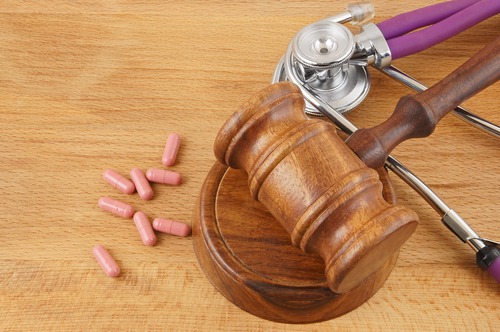 Learn the most common areas in which the potential exists for medical mistakes.
Learn the most common areas in which the potential exists for medical mistakes.
Jump To:
Despite the best efforts of doctors and other healthcare professionals, medical mistakes happen every day. What separates a mistake from medical malpractice is often not the areas in which they occur, but the degree to which the mistakes were avoidable and their impact on the patient.
Areas in which the potential exists for medical mistakes is, therefore, such a broad category that it would be impossible to produce an exhaustive list of all the ways it can occur. Instead, we will isolate who can be held liable for medical mistakes when they rise to the level of medical malpractice and situations in which errors are particularly common.
Potential Liability for Medical Malpractice
One of the most important misconceptions surrounding medical mistakes is that liability for malpractice is limited to doctors alone. This is not the case. Almost any healthcare professional, including nurses, lab technicians, and physicians’ assistants have a duty of care toward their patients and may be liable for malpractice if they break it.
A medical facility, such as a hospital or clinic, may also be liable in a malpractice case if a healthcare professional employed there injured a patient with their negligent behavior.
Typical Areas in Which the Potential Exists for Medical Mistakes
Some of the most common areas in which the potential exists for medical mistakes include surgical errors, medication administration and prescription, hygiene, failure to diagnose, and misdiagnosis.
Surgical Errors
During surgery, a patient is in a highly vulnerable position. The doctor, along with everyone involved in the procedure, has a high standard of care to protect the patient’s safety. When surgical errors occur due to negligence, the damage to the patient can be painful, costly, and even life-threatening. Examples of surgical errors caused by medical malpractice include:
- Operating on the wrong body part
- Leaving a surgical instrument inside the patient’s body
- Failing to sterilize equipment or practice proper hygiene
- Failing to provide adequate post-operative care
- Recommending and performing a procedure that is not necessary
- Failing to review proper pre-operative protocols with the patient (e.g., avoiding certain medications or foods before the procedure)
Medication Administration and Prescription
Prescription drugs can be highly destructive when administered improperly. When a patient takes too much of a drug, takes the wrong drug, or has a contra-indication with the drug, the results can be deadly.
Doctors and pharmacists must exercise care when prescribing and administering drugs. Any errors that are due to negligence may constitute malpractice.
Hygiene
Hospitals and medical facilities are responsible for shielding vulnerable patients from infection from other patients or from the environment. That starts with proper hygiene.
If a patient develops an illness due to poor hygiene at a medical facility, then the patient often has a strong case for medical malpractice. It was likely someone’s responsibility to protect that patient, and that person failed. The employee, as well as the facility, may be liable for the patient’s injuries.
Failure to Diagnose
When a doctor fails to identify the source of a patient’s symptoms despite having enough information to make a diagnosis, the consequences for the patient can be severe.
When it comes to many serious illnesses, the long-term prognosis for recovery depends almost entirely on early detection. Patients’ lives often depend on their doctor making a timely diagnosis. Any failure in this area can constitute medical malpractice.
Misdiagnosis
Just as important as making a timely diagnosis is making an accurate one. When a doctor misdiagnoses a patient, several serious issues can result. First, the patient fails to get treatment for the source of their symptoms. When an accurate diagnosis finally gets made, the condition may be more advanced and difficult to treat.
Second, the patient may receive treatment for the wrong condition. If this treatment has side effects — which many medications do, some of them severe — the patient suffers these complications unnecessarily. The doctor who made the misdiagnosis should be held accountable for the patient’s suffering.
If you suffered injury because of negligence by a doctor or health care provider, the medical malpractice lawyers at Newsome | Melton can help you hold the responsible party liable and recover damages. Our attorneys fight for the rights of injured victims all over the country.
Legal Information - News Articles

Last week, it was announced that the state Supreme Court of Pennsylvania would discuss whether or not to overturn a law that allows defendants in medical malpractice lawsuits to avoid prosecution based on “error in judgment”. The decision came as Stephen and Nicole Passarello were granted a new trial after their original lawsuit was dismissed
Read More
The Law of Medical Malpractice in Montana: A Survey of Basic Considerations Montana medical malpractice law is among the most complex legal practice areas. The statutes, case law, and regulations governing medical malpractice law in Montana are highly technical. For instance, there are very strict and complicated filing deadlines that must be followed, or the injured
Read More